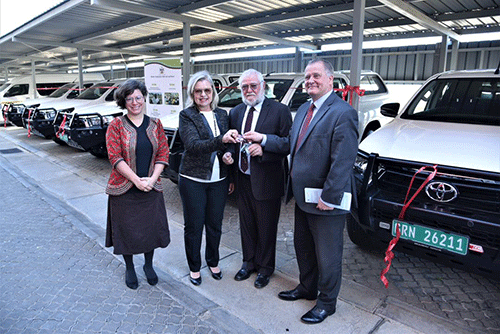The ministry of agriculture and land reform has failed to account for at least 474 government vehicles, auditor general Junias Kandjeke has found.
No reasons were provided.
The findings are contained in the ministry’s 2020/2021 audit report which was submitted to the National Assembly for scrutiny last week.
The vehicles in question include sedans, bakkies, combis, heavy vehicle (lorries, tractors, buses and graders), motorbikes and others (S/Ws, SUVs and trailers).
During the audit, auditors observed differences in the ministry’s balance sheets concerning the number of vehicles under its care. For example, the report shows that on 31 March 2022, the ministry had 88 sedans. The following day, it is reflected that it has 278 sedans which is a difference of 190.
As for pick-ups and combis, one figure shows the ministry has 657 of them while another shows 711. The variance is 54.
On the front of heavy vehicles, the balance sheet on 31 March 2020 indicates the ministry has 201 while 65 is the figure on 1 April 2020 leading to a discrepancy of 136.
The report further indicates the ministry recorded 77 motorbikes on 31 March 2020 and 46 on 1 April the same year. This means 31 motorbikes could not be
verified.
Under the category for “others”, the ministry initially recorded five vehicles. This figure would jump to 68 on 1 April 2020, according to the balance sheet resulting into a difference of 63.
The ministry’s slo
ppy accounting processes have left Kandjeke and his staff wondering what the actual number of vehicles on hand is.
This is a contravention of treasury rules, which state the executive directors must accurately account for State monies and assets.
“The accounting officer should ensure that the opening and closing balances are the same. Should there be differences, explanations should be provided,” Kandjeke said in the report.
The auditors hit a brickwall when they attempted to get answers, the document further reveals.
“No comment was provided by the accounting officer,” it reads.
All in all, Kandjeke gave the ministry an unqualified audit opinion, which means its financial statements were fairly and appropriately represented.


